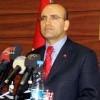Rising unemployment in Turkey hits AKP
Bloomberg

refid:11033580 ilişkili resim dosyası
Ersin Kur sleeps in the Ankara train station and begs on the street, hoping to raise enough money for the 36-hour bus ride back to his hometown of Erzurum after failing to find a job in the Turkish capital."There is no work and I’ve run out of options," said Kur, 22, who spent a week and a half searching for work before his money ran out. "All I want is to get home."
Turkey’s jobless rate rose to 12.3 percent in November, the highest since records began four years ago, the statistics agency announced this week. A quarter of workers between the ages of 15 and 24 are without a job and few are eligible for benefits. The global economic slowdown is pushing the economy into recession in Turkey, where growth is critical for absorbing the almost 1 million young people who enter the workforce every year.
Job losses are likely to weaken support for Prime Minister Recep Tayyip Erdoğan as his party faces local elections on March 29. The Justice and Development Party, or AKP, is campaigning on a record of economic success. "We’re going to see an explosion in unemployment this year that’s going to carry on through 2010 and 2011, creating a lot of social problems," says Seyfettin Gürsel of the Center for Economic and Social Research at Bahçeşehir University in Istanbul. "This is going to erode support for the government."
Six years of growth
The ruling AKP won 47 percent of the vote, the most by any party in 40 years, in elections called in 2007 after the armed forces tried to block its candidate for president. AKP’s popularity comes after 6 years of economic growth averaging around 7 percent. The International Monetary Fund, or IMF, forecasts the economy will shrink 1.5 percent this year, its first contraction since the AKP came to power in 2002. Industrial production slumped an annual 17.6 percent in December, the most since records began in 1986, as carmakers such as Tofaş halted production.
The economy needs to expand 6 percent a year just to keep non-farm unemployment steady, Gürsel said. In 2005, when the economy grew 8.4 percent, the jobless rate rose from 11.5 percent to 11.8 percent.
For young, casual workers like Kur there is little social protection. To qualify for benefits from the country’s 39-billion-lira ($23 billion) unemployment fund, applicants need to have contributed for 600 days in the past three years, an impossible task for young people who often work for cash. About half of jobs are unregistered, the statistics agency says. At the Employment Agency’s central Ankara office, dozens of people line up with the hope of receiving money. In January, the fund paid benefits to 244,000 claimants, twice as many as last year. Still, it’s only about 8 percent of the 3 million jobless. There are "no plans to ease the criteria" for qualification, Namık Ata, the civil servant who runs the fund, said in a January interview. The unemployment fund is "a new system, payments only began in 2002 and the numbers who qualify are rising all the time."
Arzu Akman has been collecting unemployment benefits from the fund since she was fired from her job as a computer programmer in late August.
"There’s not much point in even looking for work now, everyone’s in crisis. I might start looking in the spring."
















